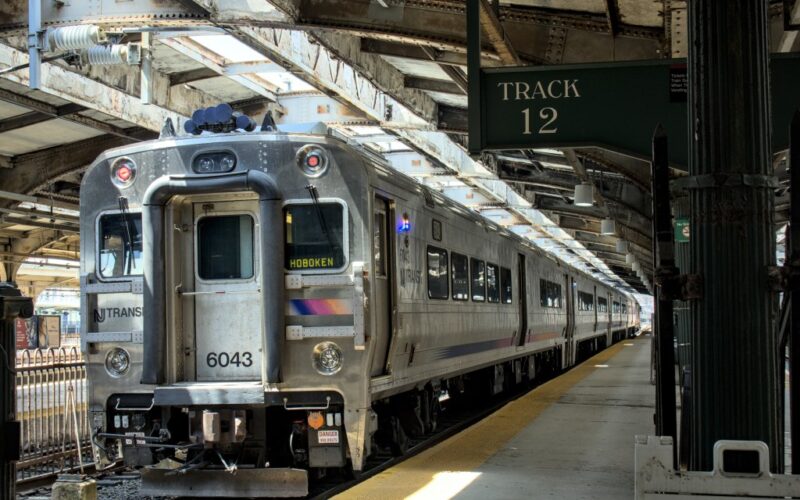A top New Jersey Transit union official said Friday the railroad needs to make significant movement on wages if a potentially crippling strike is to be averted before a May 16 deadline.
“The only sticking point of this contract we have is wages,” said Tom Haas, general chairman of the Brotherhood of Locomotive Engineers and Trainmen, during a press conference at Newark-Penn Station Friday.
“We want the passengers to know we’re on their side.”
NJT management and the engineers are set to head to Washington D.C. to meet with Federal Mediation Board members Monday. But Haas said his workwers need parity with other railroadsin the area. The union is looking for the base wage of $89,000 a year to increase to $120,000 by 2027.
BLET members overwhelmingly rejected a proposed contract last month after more than five years of negotiations.
The engineers said at the time they wanted a new contract proposal by May 16. Now a week out from their deadline, they say they’re ready to strike.
NJ Transit runs more than 900,000 bus and train trips every week and is considered the nation’s third-largest commuter rail network, behind the MTA’s Long Island Rail Road and Metro-North.
Wages have long been a sticking point in negotiations with NJ Transit management, and union leadership says their members deserve wages comparable to those of engineers on the other side of the Hudson.
NJ Transit’s engineers have been working without a contract since Dec. 31, 2019. BLET membership voted to approve a strike back in August 2023, but federal railroad labor laws call for an extended process before workers can legally walk off the job.
A tentative agreement was reached between union leadership and NJ Transit management in March, but 87% of the rank-and-file membership rejected it.
The last NJ Transit railroad labor dispute, back in 2016, was resolved at the eleventh hour narrowly avoiding a strike.
A 1983 strike lasted 34 days.








